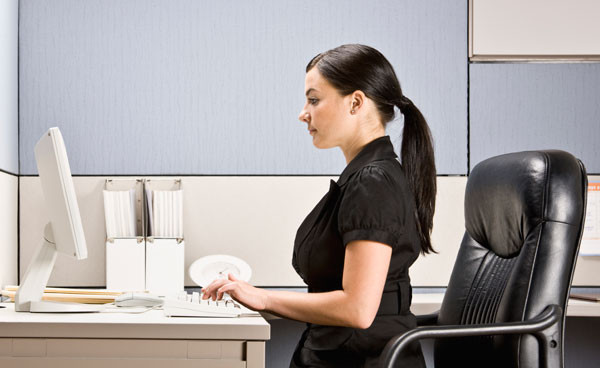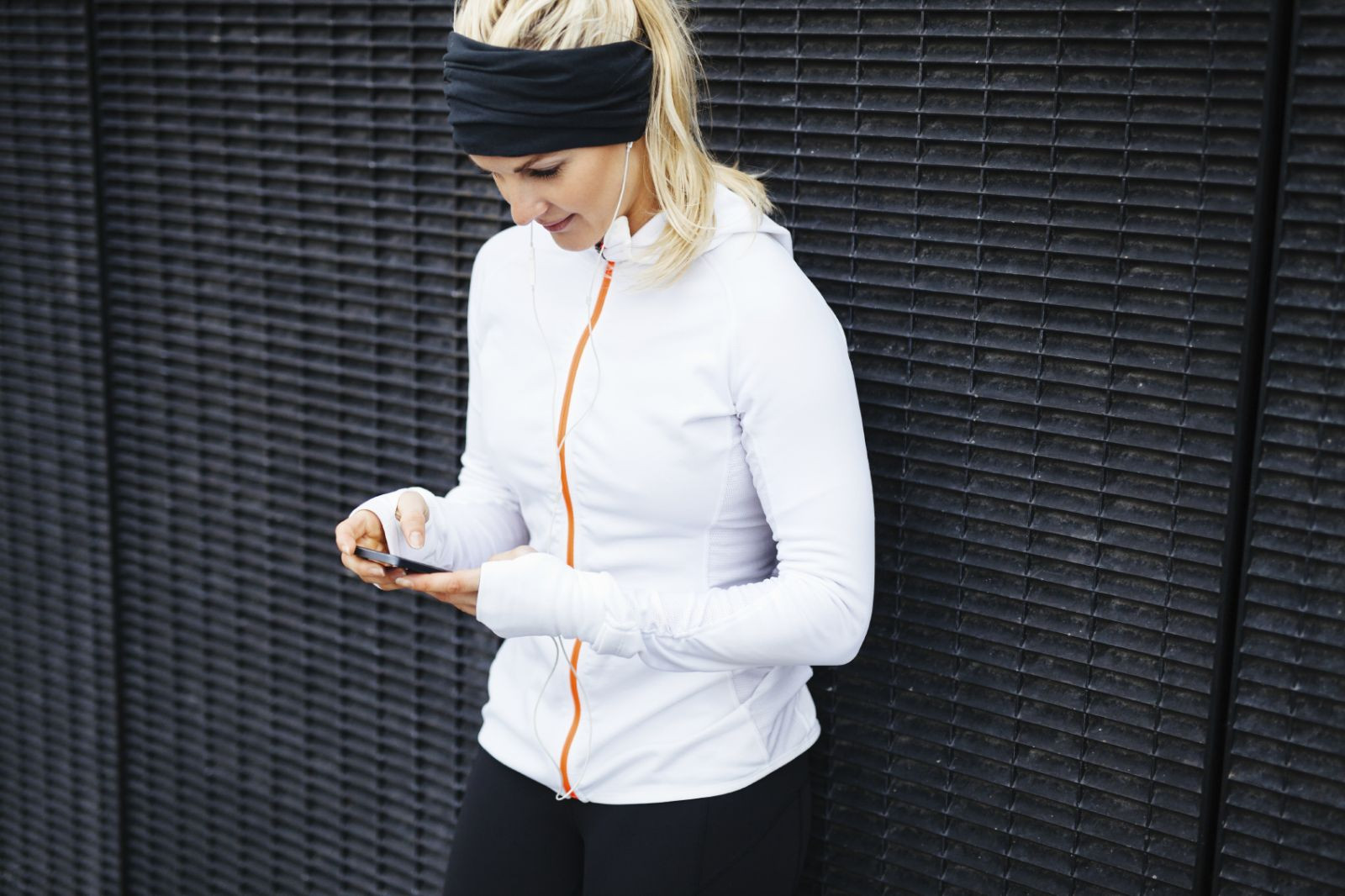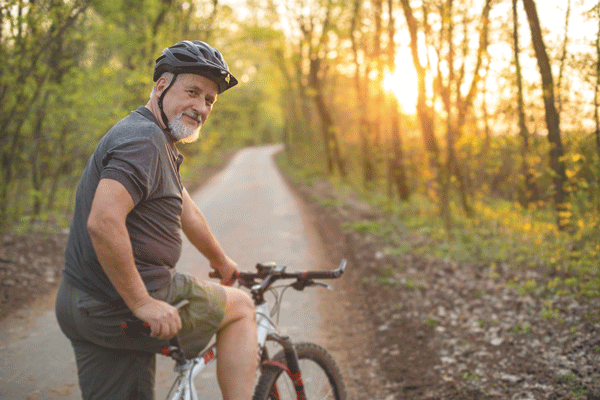
How does prostate cancer treatment affect mental health?

5 timeless habits for better health

What are the symptoms of prostate cancer?

Is your breakfast cereal healthy?

When pain signals an emergency: Symptoms you should never ignore

Does exercise give you energy?

Acupuncture for pain relief: How it works and what to expect

How to avoid jet lag: Tips for staying alert when you travel

Biofeedback therapy: How it works and how it can help relieve pain

Best vitamins and minerals for energy
Exercise & Fitness Archive
Articles
The case for measuring fitness
Cardiorespiratory fitness may soon be considered as a vital sign on par with blood pressure and heart rate.
Image: © iStock
Three decades' worth of solid evidence linking a sedentary lifestyle to higher risk of cardiovascular disease, cancer, and early death has silenced even the most ardent exercise deniers. Nonetheless, a metric quantifying a person's level of aerobic fitness has yet to make it into the set of tools commonly used to predict heart disease.
But that may soon change. The American Heart Association recently released a statement calling for cardiorespiratory fitness (CRF) to be considered a clinical vital sign, similar to how blood pressure, heart rate, and tobacco use are treated now. Assessing fitness level at your annual visit would help your doctor get a better picture of your underlying heart health and risk of disease down the road.
Why good posture matters
"Stand up straight." That's timeless advice we've probably all heard at one time or another. It's worth heeding. Good posture is important to balance: by standing up straight, you center your weight over your feet. This also helps you maintain correct form while exercising, which results in fewer injuries and greater gains. And working on balance can even strengthen your abilities in tennis, golf, running, dancing, skiing — and just about any other sport or activity.
Not an athlete? It still pays to have good balance. Just walking across the floor or down the block requires good balance. So do rising from a chair, going up and down stairs, toting packages, and even turning to look behind you.
No excuses: How to layer up for walking in cold weather
| Image: iStock |
"It's too cold." "It's too hot." "It's raining." Weather-related excuses are some of the most common reasons that walkers don't walk. But with the right clothing and preparation, almost any type of weather can be walking weather.
A key to staying warm when you're walking in cold temperatures is to stay dry — and that's exactly what layering helps you do. By removing layers as you warm up, you'll avoid excessive sweating, which can cause you to become chilled, especially later in your walk. Then you can replace layers as you cool down to remain warm.
6 tips to help you keep a walking regimen on track
Regular walks are an incredibly popular way to exercise — and it's easy to see why. Walking is easy and free (except for a good pair of shoes), and can be done just about anywhere. But it's those very qualities that can also make it very tempting to skip. If your walking routine is in danger of lapsing, try one or more of these strategies to keep going.
1. Have a backup plan. For example, if you sleep in and miss your morning walk, you commit to taking that walk during lunch instead. Or, maybe you know that dinner with friends will prevent you from taking your evening stroll, so instead you sneak in a 15-minute walk in the morning and another before you meet your friends. And keeping a pair of sneakers in your car gives you the option to squeeze in a walk whenever you have a little extra time.
Does balance go south starting at 40?
Evidence suggests that the vestibular system in the inner ear—which helps detect motion and maintain balance—starts to decline early in middle age and gets worse with each decade.
Should I stand while I read?
Taking an hourly break from reading a book to walk around or listening to audiobooks while walking can provide the health benefits of book reading without incurring the health risks of prolonged sitting.
Large study indicates racket sports offer best protection against cardiac death
In a large United Kingdom study, regularly practicing racket sports, swimming, or aerobics significantly reduced the risk of dying over eight to 13 years.
Fitness trackers: A path to a healthier heart?
New, improved devices and apps may better guide you to exercise at the right intensity to help your heart.
Image: LDProd /Thinkstock
Perhaps the best-known problem with fitness trackers is that people often retire them to a junk drawer after a few months, once the novelty of using them wears off. But that's not the only shortcoming with these devices, which are typically worn around the wrist or clipped to clothing.
Sure, they'll count your steps, display your heart rate, and even estimate how many calories you've burned—although you'll probably need to sync your tracker with an app on your smartphone, tablet, or computer to see these data. However, very few of the popular free apps of this type are grounded in published evidence. And they don't necessarily follow well-established exercise guidelines. Even if you do meet recommended daily exercise goals—like 30 minutes of brisk walking or 10,000 steps—how do you know if you're really working your heart enough to keep it healthy? And what if you've been sedentary for years or have a chronic medical condition—can an app help you exercise safely?
Pedal your way to a healthier heart?
People who bike to work or cycle for pleasure may have a slightly lower risk of heart disease compared with noncyclists.
Your New Year’s resolution: A gym membership?
If you are ready to make a commitment to improve your fitness and health, joining a gym gives you a wide variety of options for equipment and types of workouts. This can help you sidestep workout boredom and help you meet recommended physical activity guidelines. But before you sign up, take time to ask questions to be sure the gym meets your needs and budget.

How does prostate cancer treatment affect mental health?

5 timeless habits for better health

What are the symptoms of prostate cancer?

Is your breakfast cereal healthy?

When pain signals an emergency: Symptoms you should never ignore

Does exercise give you energy?

Acupuncture for pain relief: How it works and what to expect

How to avoid jet lag: Tips for staying alert when you travel

Biofeedback therapy: How it works and how it can help relieve pain

Best vitamins and minerals for energy
Free Healthbeat Signup
Get the latest in health news delivered to your inbox!
Sign Up











